Chizumulu Island
The Chilembwe is a robust boat, a large metallic beast that looks as if it could cope with the roughest seas. It was to be the vessel that Claire and I would take to get to Chizumulu Island near the Mozambique side of Lake Malawi. We sat on the side of the lake and waited whilst two small fishing boats with outboard engines were used to ferry people and cargo from the shore to the Chilembwe. These boats would be filled so much that they were sunk deep in the water. If you had put one more person on then the water would have come up over the edges and flooded the boat. There were around twenty soldiers loading giant pieces of tree when we arrived and their boat was barely floating. It moved around three miles an hour as it slowly pottered up to the Chilembwe. After an hour of waiting around we were finally taken over to the back of the boat. We climbed aboard and made our way into the cabin at the front where around one hundred or so people were sat in the seats. This, we discovered, was a mistake. The lake was choppy. Really choppy. And we were sat right at the front which meant for three hours we were moving up and down and up and down and up and down. I have never been sea sick, and neither has Claire, but both of us were struggling towards the end of the trip. I was sweating and my stomach was rumbling and Claire was not looking any better. People were throwing up all over the place, and we were sure that we’d be joining them soon.
Finally, after a hellish three hours, we pulled up at Chizumulu Island. It was pitch black and we had to make it from the front of the boat to the back to get off. Most of the passengers were remaining on the boat on the rough water, to continue to the next stops at another island called Likoma and then the southern part of the lake. But luckily for us the first stop was ours. Around half an hour later our feet touched down on the sand of Chizumulu Island, where we’d be staying to unwind for a few days.
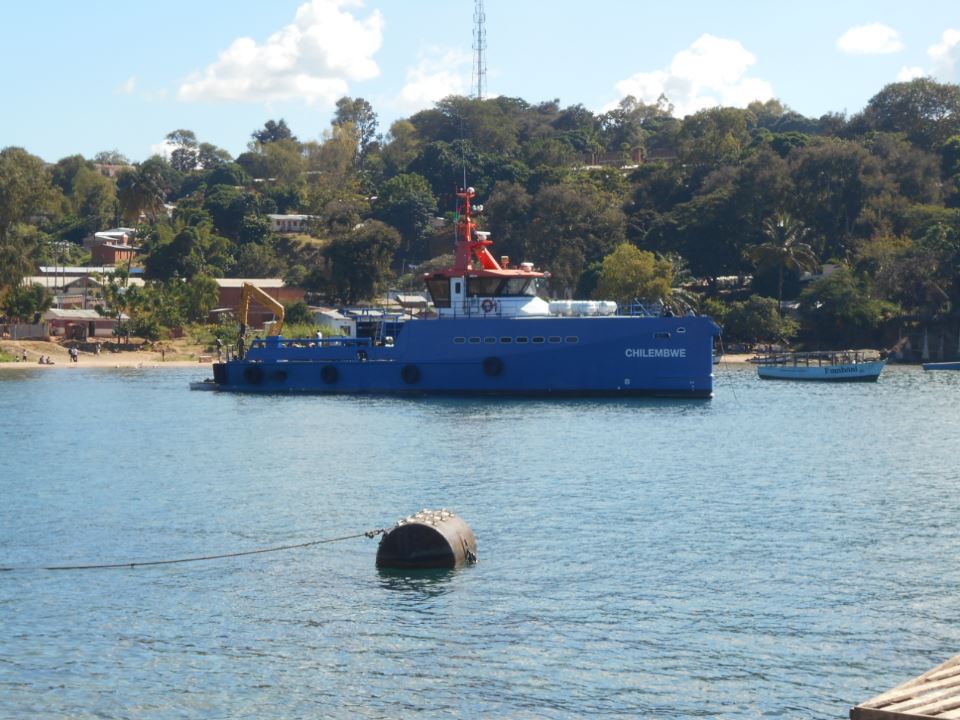
The Chilembwe
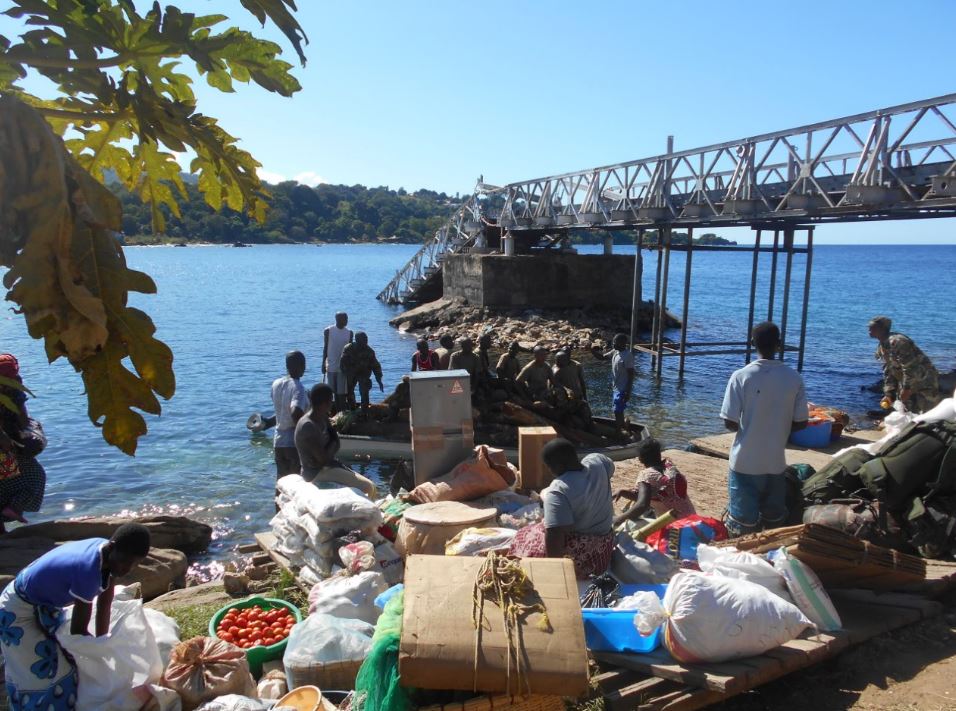
Waiting to climb aboard
When we arrived at Wakwenda Retreat, the lodge we were staying at and the only one on the island, we were greeted by Henry, who worked there, and Nick the owner. Nick has been running Wakwenda Retreat for twenty two years. Twenty two years living on this small island. We couldn’t imagine it. Nick was, however, a very attentive owner, thanks in part to the fact that we were the only guests staying there at the time. He ate with us – the food was fantastic – and we drank beers together each night, chatting away about this and that. Nick was good fun, however, you could tell that he was pleased to have some more English people around to vent to. He did spend rather a lot of the time moaning, which we forgave him for. However, there is only so much time you can spend listening to someone telling you about the issues they are having with their electricity supplier. But as I said, Nick was a good guy and his lodge was absolutely gorgeous. The bar area was right on the edge of the lake, with a hang out area in amongst the rocks of the shoreline. The water at this point was also incredibly clear, allowing you to see all of the fishes as they swam amongst the rocks.
Speaking of wildlife, during our stay on Chizumulu we managed to see a pretty decent range of animals. Firstly we spotted a large monitor lizard mere metres away hanging out in the sunshine below the deck we were sat on. Then, as I was reading and Claire was making her way to the water for a swim, I heard a scream. As she was walking, a snake shot past her diving down between two rocks. She wasn’t sure what breed it was, but said that it was grey which is not good. The grey snakes are usually black mambas, which are the most poisonous snakes around. However, Nick said that there weren’t any on the island, so hopefully she just got it wrong and it was a more harmless species. Speaking of snakes, Claire has been rather affected by the mention of black mambas. We were told that people who are wary of them are usually the ones who get bitten. This is because they tend to tip toe around, meaning that the snakes fail to sense their presence, which can often lead to people and snakes getting too close together. We were told that if you walk around normally, your heavy footsteps often warn the snake that you’re near allowing it to move away safely. Claire, however, has taken this to the next level. Whenever she is worried that snakes may be nearby she walks around with overly heavy footsteps. She raises her knees high and slaps her feet to the floor like a clown in a circus. It’s quite funny though it does make her look like she’s gone a bit crazy.
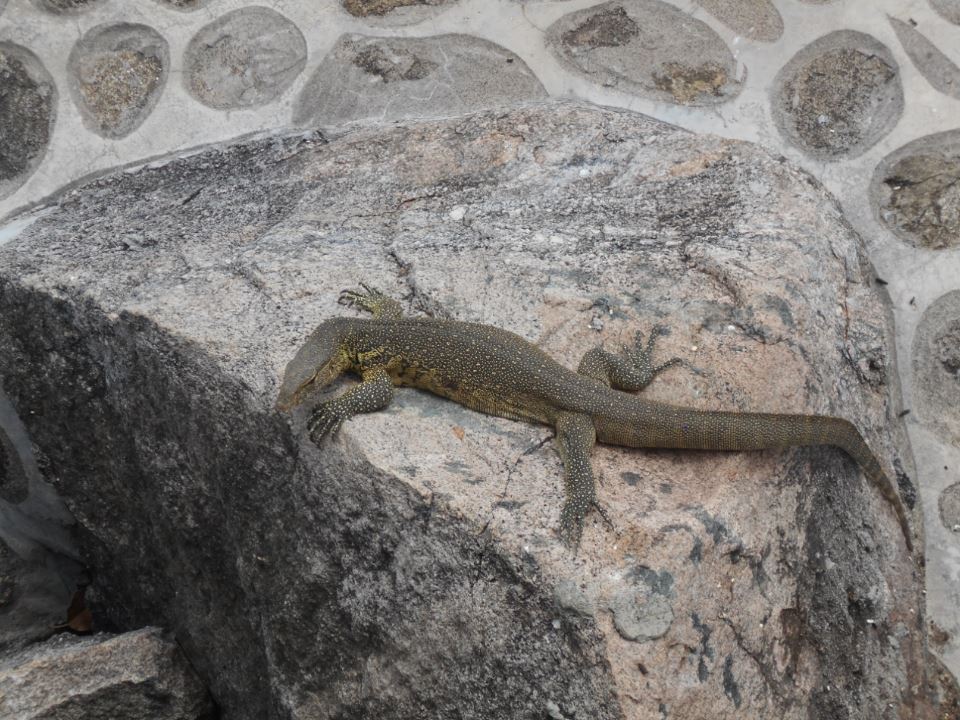
Monitor lizard
Next on our mini Chizumulu safari were the two bats that hung from the ceiling in our dorm. These fuzzy little fellows joined us in our room each night and Claire took a liking to them, often standing and staring at their ‘cute little faces’. We also had the weirdest looking spiders I’d ever seen. They were huge, and had what seemed like giant antennae, making them look like a cross between a spider and a cockroach. Apparently they were good for keeping the actual cockroaches away, so we weren’t complaining.
Chizumulu is a rather secluded island with a few thousand inhabitants. The electricity runs in the morning, with a break around lunchtime, before coming back on in the afternoon. Then, around ten o’clock it is switched off until the morning . There are, however, a few bars, one of which was showing the England v Wales game in Euro 2016. Claire, Nick and I, along with three of Nick’s dogs, all walked the half an hour to the other side of the island to watch the game. The bar we had chosen was called Baghdad – though it was misspelled and was actually called ‘Baghidad’. I asked Nick if he knew why the establishment had this name, but he wasn’t sure. As the game wore on more locals came along to watch, and when England finally scored their last minute winner, everyone jumped up and cheered, though no one louder than Nick and me. The walk back was fantastic, as we were in a great mood and the sun was slowly setting beyond the horizon. After spending lots of time on the westerly side of the Lake Malawi, it was great to be on the east side enabling us to watch the sun set properly.
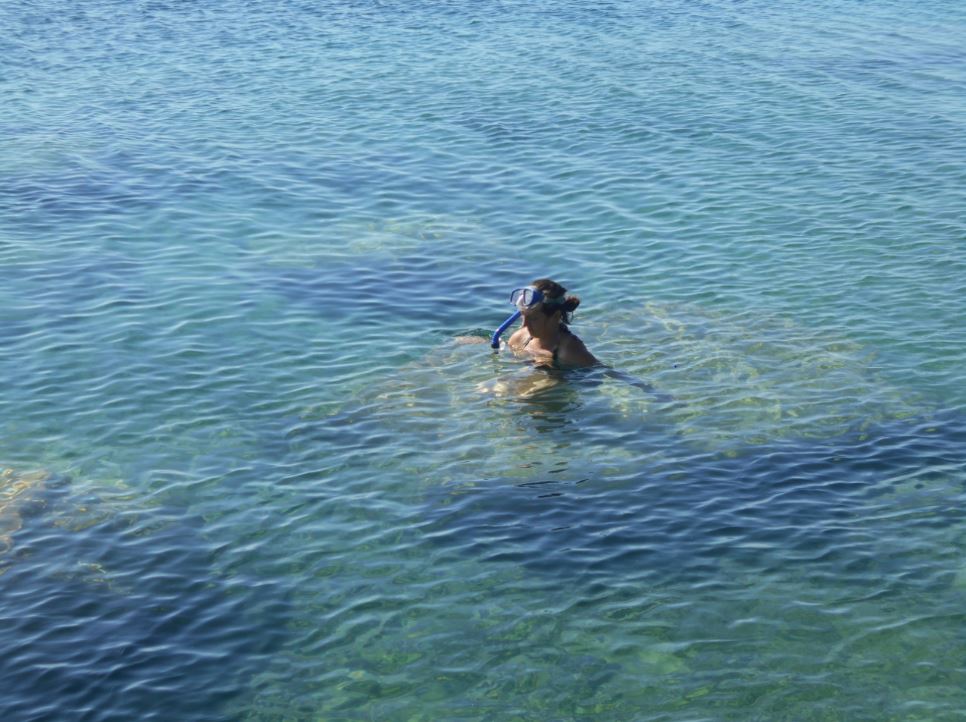
Claire swimming
After five days of doing very little, Claire and I were heading back to the mainland and Nick was joining us as he had to collect supplies. It turns out that the other two big boats that were supposed to be moving between the islands and the mainland, the Ilala and the Chambo, were both out of service as they were being fixed. This meant that the Chilembwe, the boat we’d taken over, was the only big vessel doing the trip. This meant that the boat was absolutely swamped with people, cargo and hundreds of gigantic boxes of dried fish to be sold on the mainland. The boat was so incredibly full that we just sat down on the deck outside and settled in for the ride. Luckily the trip was much calmer than our journey to the island, so it wasn’t too uncomfortable. However, once we arrived in Nkhata Bay, the final stop for the day, we had to wait for a few hours whilst all the people pushed and shoved in order to get off the boat. Rather than join in the scramble we sat back and waited our turn. But with one tiny boat being used to take people from the boat to the shore, we had to wait for a long time – there is a disused dilapidated jetty that would make this entire process ten times easier but no one seems to want to put in the money or time to get it fixed. The sun was shining down on the boat and I felt like I was going to melt. The crew up on the top deck were watching from above with bemusement, and lots of people were complaining that they shouldn’t have let the boat get so full.
But eventually, after a long wait, Claire and I made it onto the shore, thanked Nick for a great relaxing week, and jumped in a taxi back to Mzuzu. Within a few hours we were back at Joy’s where we’d end up spending the next four days catching up on work and correspondence and planning the next phase of our trip.
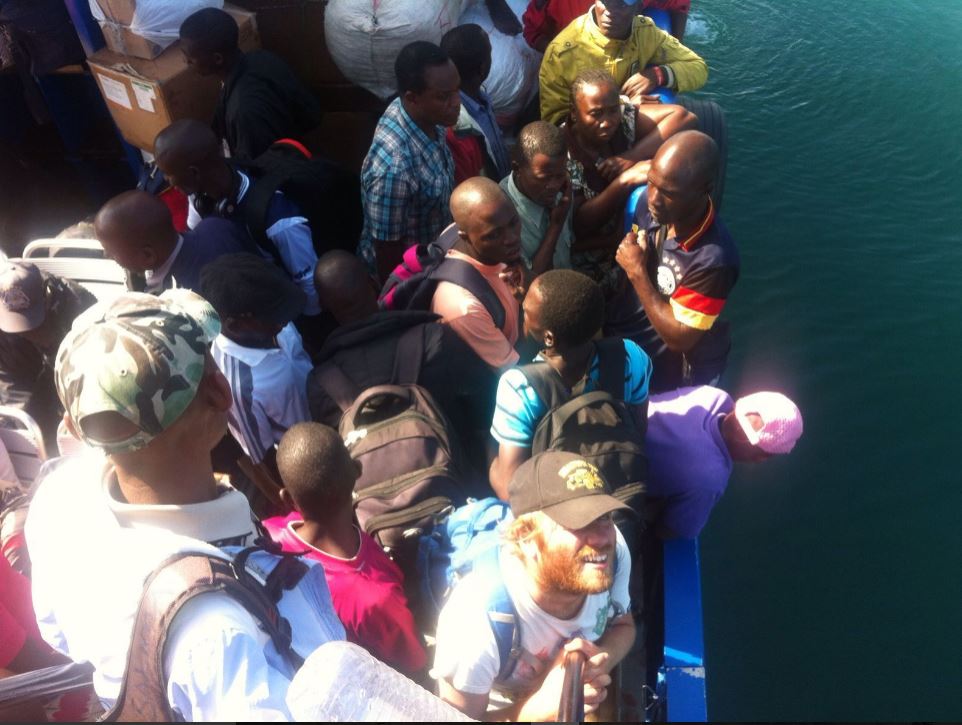
Two hours waiting to get off the boat

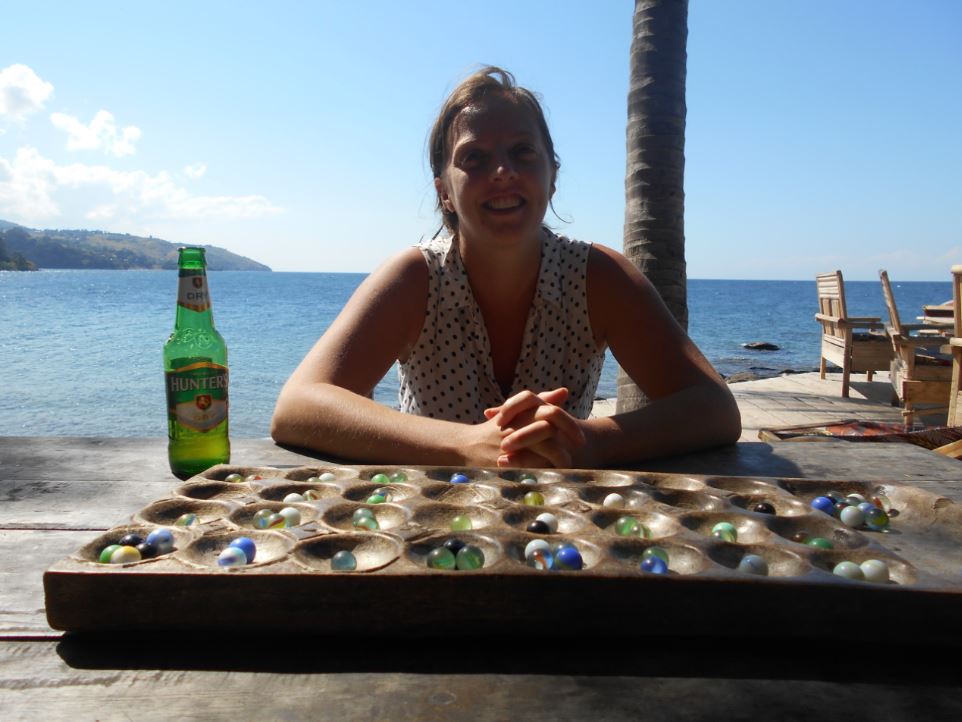
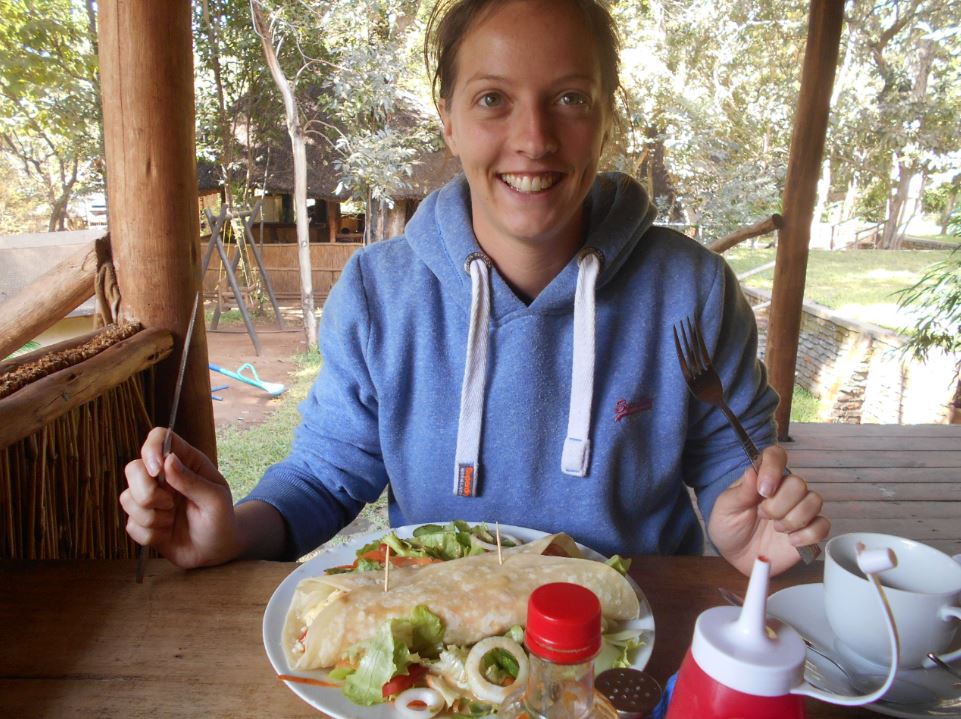





Comments are closed here.